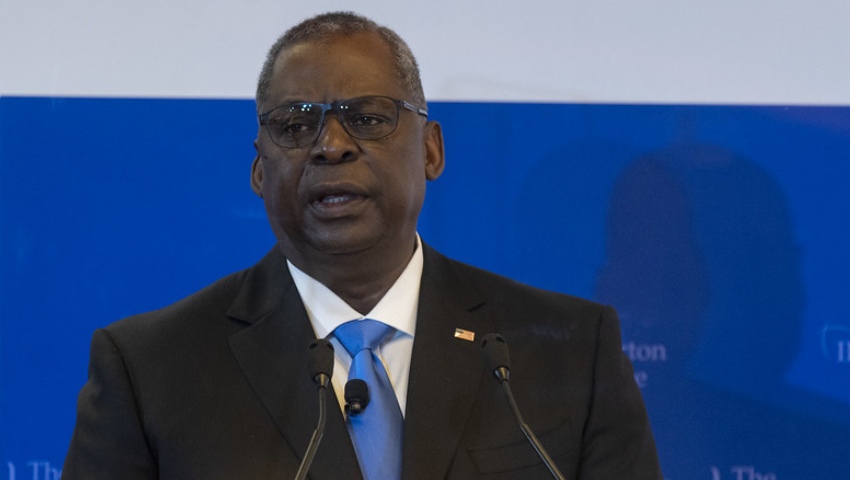China has been urged to temper its aggression and resolve regional tensions through constructive dialogue, with the US warning it “will not flinch” if its interests are threatened.
In an address to Singapore’s International Institute for Strategic Studies, US Defense Secretary Lloyd Austin called for a “stronger rules-based international order” in the Indo-Pacific amid heightened tension sparked by Chinese aggression in the South China Sea and across the Taiwan Strait.
Austin stressed Beijing's claim to the majority of the South China Sea “has no basis” in international law, adding that China’s assertion “treads on the sovereignty” of nations occupying the region.
“We continue to support the region's coastal states in upholding their rights under international law [and] we remain committed to the treaty obligations that we have to Japan in the Senkaku Islands and to the Philippines in the South China Sea,” he said.
Secretary Austin lamented Beijing’s reluctance to resolve the disputes peacefully, claiming that China’s indifference to international law has also been on display through its land border dispute with India, its military flyovers in Taiwanese airspace, and humanitarian abuses within mainland China.
“Now, these differences and disputes are real. But the way that you manage them counts,” Secretary Austin continued.
“We will not flinch when our interests are threatened. Yet we do not seek confrontation.
“So let me be clear — as Secretary, I am committed to pursuing a constructive, stable relationship with China ... including stronger crisis communications with the People's Liberation Army.”
The Defence Secretary went on to renew the United States’ commitment to supporting regional allies, particularly through its co-operation with ASEAN.
“We are not asking countries in the region to choose between the United States and China. In fact, many of our partnerships in the region are older than the People's Republic of China itself,” he said.
That's why we are expanding our important work with countries throughout the Indo-Pacific and with ASEAN itself, a critical body that brings the region closer together ... offering everyone a voice, and building deeper habits of co-operation.”
[Related: Warships, attack helicopters showcase firepower at TS21]



